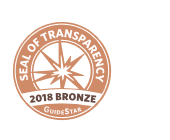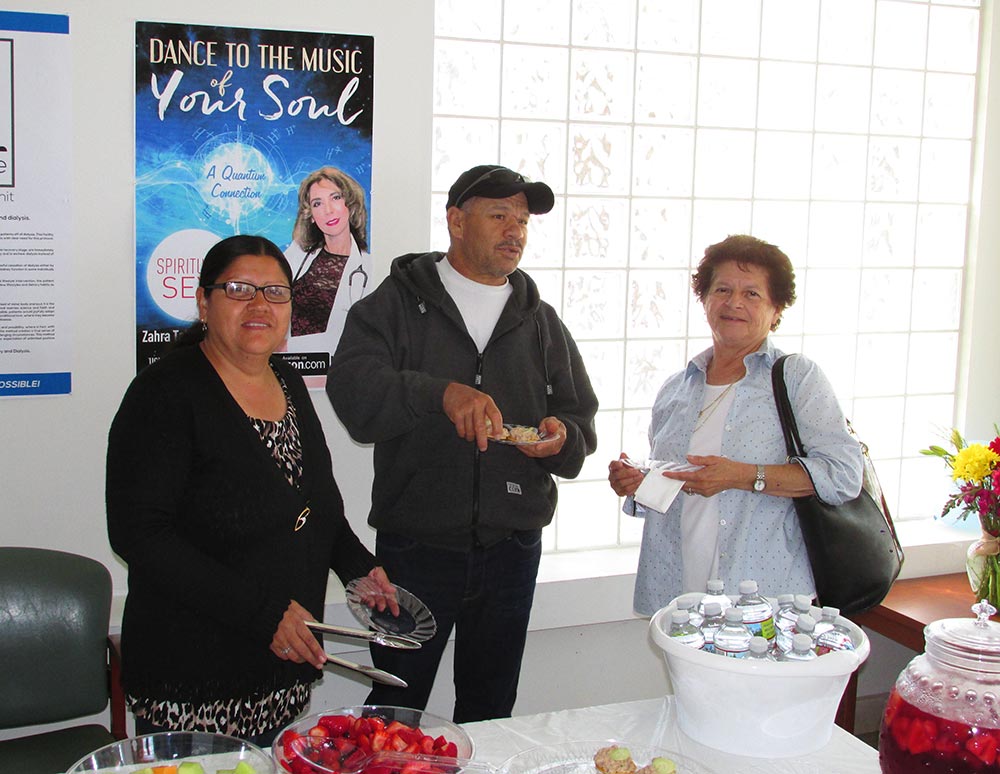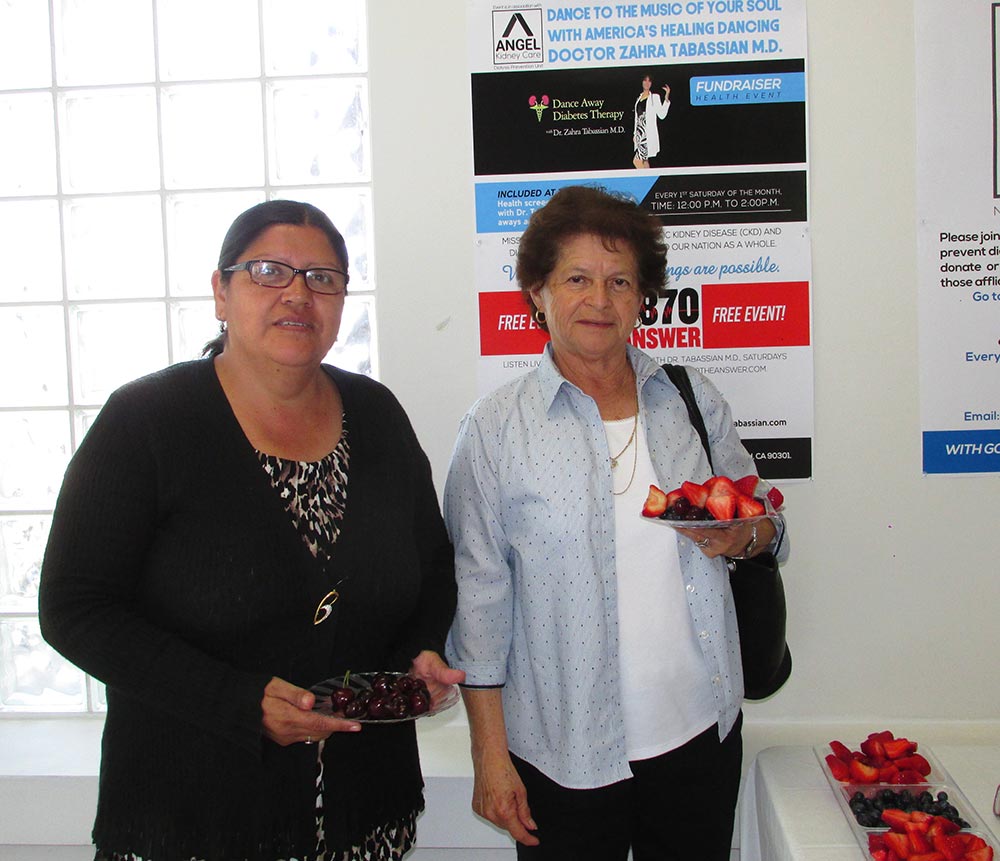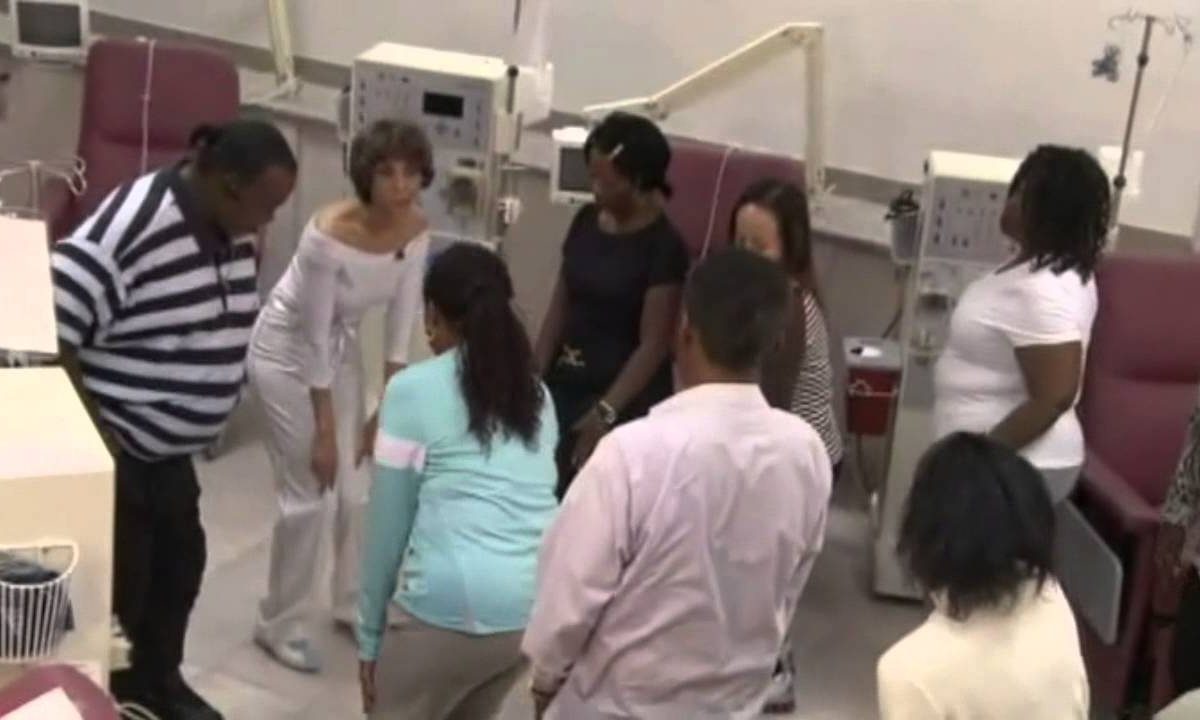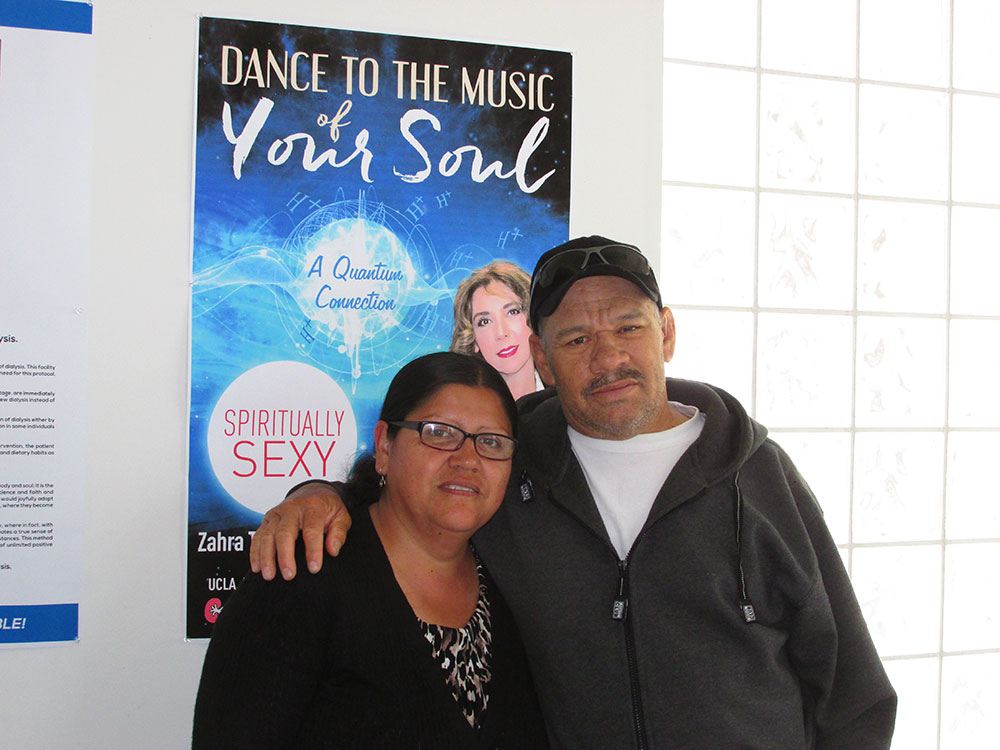ANGEL HEALTH CARE FOUNDATION NONPROFIT 501 (C)(3)
Angel Health Care is a non-profit organization that primarily endeavors to STOP UNNECESSARY DIALYSIS.
To prevent dialysis by reversing and eliminating chronic kidney disease, stemming mainly from diabetes while nurturing our connection to God.
Angel Health Care Nonprofit 501 (c)(3) is an organization that educates, prevents and cures Chronic Kidney Disease (CKD) originating mainly from diabetes and hypertension due to unhealthy lifestyles and poor dietary practices.
Given the overwhelming prevalence of renal failure and CKD in the underserved community of Los Angeles, CA, coupled with the numerous commercial dialysis centers that populate this community, Angel Health Care appears to be the only new and real promise for the people of this area.
Unbelievably high incidences of CKD in this community is rooted in lack of education and poor lifestyles revolving primarily around destructive dietary habits and sedentary routines. For example, the number of fast-food establishments in this community is legion; these places serve no great favors to those individuals struggling with a multitude of health issues.
One-third of the patients who end up on dialysis until the day of, and another third until a week before initiation of dialysis, have no clue that their kidneys have failed.
Angel Health Care, through regular health events and community gatherings, educates and motivates the individual to discover and reverse the disease. Education and early screening of individuals who are motivated to arrest this ominous but preventable condition is the key.
Diabetes is the Number One cause of kidney failure in our country, followed hard upon by hypertension. Prevention and cure of these major precipitators of CKD is the focus of Angel Health Care.
Angel Health Care conducts research to prove efficacy of this method in preventing CKD from worsening to a level where dialysis is irrevocably required.
This nonprofit organization hosts community outreach events to promote the message of good health by way of radio and other media outlets.
Utilizing Dance to the Music of Your Soul, Angel Health Care is at the forefront of a dramatic transformation in a healthcare system that has lost its way and has lost respect for its patients and their ability to heal naturally.
Despite spending trillions of dollars on healthcare annually, serious diseases like obesity, diabetes, and depression and dialysis dependency are on the rise and are continuing to plague our country financially, emotionally and spiritually. Angel Health Care puts an end to the healthcare crisis by implementation of preventative methods, with an emphasis on education and love for patients. It does so through the following activities:
- We conduct research to scientifically prove with the FDA approval the impact of education and motivation of the individual on prevention, retardation and reversal of chronic kidney disease through Dance to the Music of Your Soul methodology.
- We hold regular free health events and radio programming platforms to educate and motivate individuals with chronic kidney disease, or even those who have recently commenced dialysis, to improve the health of their kidneys.
- Angel Health Care Foundation authored the measure called “Stop Unnecessary Dialysis” which calls for a 90-day intermediary process for anyone who has a GFR (kidney function) of equal to or less than ten, and those who are recommended to go on dialysis, or those who have just been started on dialysis. See link for details of the measure. PLEASE SUPPORT US FINANCIALLY TO MAKE THIS INITIATIVE LAW IN ALL THE UNITED STATES.
Notice is hereby given by the persons whose names appear below of their intention to circulate the petition within the County of Los Angeles for the purpose of amending the existing protocols on subjecting individuals with chronic kidney disease to permanent chronic dialysis and to revise the approach of the health care system in order to stop unnecessary dialysis treatment. A statement of reasons for the proposed measure as contemplated in the petition is as follows:
Why is this proposed measure so critical?
Dialysis is a $3-billion industry in California and is a verifiable burden on the healthcare system. Dialysis represents a monstrous cost to the medical community. But not only is the burdensome cost so onerous, individuals afflicted by kidney failure and certainly dialysis, suffer rapid downward spiraling health outcomes and significantly abbreviated lifespans. As scientifically proven, a major cause of death in patients on dialysis is cardiovascular disease rather than kidney failure itself. Additionally, many complications associated with dialysis are multitudinous in nature. This adds up to unnecessary healthcare dollars and hospitalization.
Here are some of the complications associated with dialysis:
- Vascular access related causes such as clotting, bleeding and infection.
- Fluid overload causing hypertension, strokes, heart failure, heart attacks and respiratory failure. Some patients require intubation and ventilatory support to sustain life in intensive care unit.
- Electrolyte abnormalities, especially high potassium levels in the blood called hyperkalemia, which is life-threatening and can cause death.
Passing this measure will screen and prevent unnecessary dialysis. Not implementing this measure will cause countless people on dialysis to suffer either from premature death or unnecessary suffering and a lower quality of life.
There is currently no system in place to implement the above goals and to circumvent unnecessary dialysis procedure.
This proposed measure will ascribe needed focus on ascertaining whether certain patients require dialysis justifiably, and if dialysis can be avoided for people who don’t need it and prevented altogether. Los Angeles, California and California itself urgently needs a more effective strategy to analyze and assess dialysis protocols within the current healthcare system. The current cycle is costly and ineffective. This new initiative will save time, money and lives.
Pursuant to Elections Code section 9103, subdivision (a), the proponents listed below respectfully request that a ballot title and summary be prepared. Please immediately transmit the measure to the County Counsel for a title and summary pursuant to Elections Code, section 9105 subdivision (a).
The proposed initiative reads as follows:
This measure may be known and referred to as “Dialysis Prevention Assessment and Reform Initiative.”
The People of the County of Los Angeles find as follows:
Unnecessary dialysis protocols are promulgated by three primary issues
1) Non-Interference with Factors that cause Kidney Failure
From 2002 to 2016, the burden of chronic kidney disease (CKD) in the United States grew faster than that of other non-communicable diseases, according to the 2016 Global Burden of Disease Study. Loss of health and life increased substantially, particularly in younger adults aged 20 to 54 years. Nearly two million healthy life-years were lost in 2016 to CKD, a 52.6% increase from 2002.
CKD-related disability – adjusted life years (DALYs) rose from 1,269,049 to 1,935,954. The CKD toll in the United States outpaced global epidemiologic trends and was linked to changing demographics and socio-economic developments. The study was supported in part by the Institute of Public Health at Washington University, in St. Louis and the U.S. Department of Veteran Affairs. Published on line November 30, 2018 in JAMA Network Open.
Kidney disease is, to a great extent, preventable. Given the fact that diabetes and hypertension are the most common causes of chronic kidney disease (CKD) and ultimately advanced kidney failure which requires dialysis or transplant - end stage renal disease (ESRD), by controlling diabetes and hypertension kidney failure and dialysis dependency can be forestalled or at least retarded to a large degree.
2) Initiation of Dialysis Prematurely in Patients better off Without it
The current state of medicine encourages initiation of dialysis prematurely in many patients. Many patients without significant symptoms and certainly with correctable issues that can be treated by non-dialysis measures, are put on dialysis prematurely. To make the story worse, there are also many patients without the presence of symptoms of kidney failure and who still have adequate kidney function who are pushed on dialysis prematurely. Premature initiation of dialysis instead of encouraging non-dialysis protocols through some changes in diet, lifestyle, and modification of their medications, is the common practice. Here are some of the simple natural ways of avoiding premature dialysis:
- Regular bowel movements and avoidance of constipation.
- Reduction of consumption of high-potassium containing foods, such as potatoes, tomatoes, bananas and oranges.
- Reducing salt and fluid intake to avoid fluid over-load, resulting in shortness of breath and swelling of the legs (edema), and uncontrollable hypertension.
- Utilization of certain medications, such as diuretics which enhance urine output and starting medications like keyaxqlate that lower blood potassium levels and even, bicitra, which decreases acidity of the blood and, as an evidence-based method, prevents rapid deterioration of kidney function. In many instances, instead of these simple maneuvers and education of patients, they are encouraged to start dialysis.
3) Lacking focus for taking people off dialysis when they don’t need it
Kidneys are very sensitive organs and are very prone to suffer from an acute insult. In many instances, this might require immediate need for dialysis. However, in many cases after the insult is removed the kidneys recover and resorting to dialysis is unnecessary. Acute kidney injury (AKI) means an insult has occurred and has led to significant deterioration of kidney function.
Also, in many instances, when an acute insult is superimposed on chronic kidney disease, this causes a rapid decline in kidney function. One must keep in mind that upon recovery from the acute insult and overall improvement of the patient’s condition, kidneys tend to improve to their baseline level of function.
If patients who are fortunate to experience recovery are continued on dialysis, this can result in chronic and irreversible damage to the kidneys. Unfortunately, in today’s practice, there is not enough focus to determine improvement of kidney function and to discontinue dialysis treatment when it’s no longer necessary. Causes of acute kidney injury (AKI) are versatile and many of them can easily be reversed.
Here are some examples of acute kidney injury (AKI).
- Dehydration,
- Over-the-counter medications such as non-steroidal pain killers,
- Inadvertent side-effects due to antibiotics and some other medications like chemotherapeutic agents and other toxins.
The purpose of this measure is to concentrate on the above three primary categories that will determine and prevent unnecessary dialysis.
The current state of medicine encourages initiation of dialysis in many patients even though many issues related to their kidney failure can be treated by non-dialysis measures. To make the story worse, many patients without the presence of irreversible symptoms of kidney failure are pushed on dialysis prematurely, instead of encouraging non-dialysis protocols through some changes in diet, lifestyle, and modification of their medications.
- This measure suggests an intermediary process to implement strategies that would prevent unnecessary dialysis and disallow dialysis dependency when kidneys recover from an acute insult and their function improves.
- This measure proposes an interim phase for 90 days after initiation of dialysis for every new case which is deemed to be compliant with rules and recommendations. This measure emphasizes making the following efforts before a patient is sentenced to permanent dialysis for life. During this 90-day interval, a diligent screening analysis for improvement and reversal of acute kidney injury and termination of dialysis will be emphasized. This effort will utilize concomitant dietary, lifestyle and medical guidelines specific to this group of patients. The three primary causes of unnecessary dialysis will be thoroughly investigated and eliminated during this phase. This is suggested to be done in designated places aiming at prevention of unnecessary dialysis which are run by board-certified kidney specialists (nephrologists) who are willing to perform the task. In this measure patients’ well-being and safety is assessed by their clinical findings and measurement of their GFR.
GFR (Glomerular Filtration Rate) is a simple blood test which measures kidney function. The more the GFR, the better the kidney function. During this phase, patients will be closely monitored for their kidney function, electrolyte (especially potassium) and evaluated clinically (fluid status and symptoms such as swelling, shortness of breath) under the supervision of a board-certified kidney specialist.
Recommended Steps to Prevent Unnecessary Dialysis:
- 100% of individuals who still produce adequate urine (ideally more than half a liter) and have a GFR of more than 10, whether put on dialysis already or have been advised to commence dialysis, should be referred to facilities that are willing to focus on the 90-day trial. Within the 90-day phase, all cases of Acute Kidney Injury (AKI) must be identified and eliminated.
- Within the 90-day phase, all cases of Acute Kidney Injury (AKI) must be identified and eliminated.
- Within the 90-day phase, patients will be educated on all dietary, medical and lifestyle guidelines under supervision of board-certified nephrologist. Simple dietary and lifestyle changes like less potassium intake, regular bowel movements and more physical activity in conjunction with strong mindsets conducive to improving overall health will be practiced. This will encourage compliance and protect the remaining kidney function and prevent progression to dialysis dependency.
- Within the 90-day intermediary phase special attention to education of the patients on importance of optimal blood pressure and blood sugar control will be given. Patient’s blood pressure and blood sugar will be closely monitored and treated.
- Upon correction of the cause and recovery from acute kidney injury, these patients would go through either gradual or abrupt termination of unnecessary dialysis. The details of the process depend on the patient’s underlying kidney function based on the laboratory reports and their clinical and the speed of their recovery per the nephrologist’s discretion. For example, a GFR of more than 10 which is up-trending and accompanying patient’s clinical improvement should increase the likelihood of salvation from chronic dialysis dependency and prevention of unnecessary dialysis.
During the 90-day interval, the individual’s GFR will be measured frequently (an average of weekly or per the doctor’s orders) and will be correlated with the patient’s symptomology by the nephrologist. During this phase at least one attempt to gradually of rapidly tapering the individual off of dialysis should be attempted. And for individuals who are just taken off dialysis it is suggested that during this period, a minimum of weekly, and thereafter bi-monthly, comprehensive laboratory and clinical evaluations be performed. The frequency of outpatient evaluations after the 90-day period is variable but it is suggested to be at a minimum of once monthly.
If any other proposition, appearing on the same ballot as this proposition, addresses the subject matter in a way that conflicts with the treatment of the subject matter in this proposition, and if each proposition is approved by a majority vote of those voting on each proposition, then as to the conflicting subject matter the proposition with the highest affirmative vote shall prevail, and the proposition with the lowest affirmative votes shall be deemed disapproved as to the conflicting subject matter.
If any provision of this measure or its application to any person, property, or circumstances is found to be unconstitutional or otherwise invalid by a court of competent jurisdiction, that invalidity shall not affect the remaining provisions of this measure or the application of those provisions to other persons, property or circumstances, which can be implemented without the invalid provisions and to this end, the provisions of this measure are declared to be severable.
Proponents:
Angel Health Care Foundation-Nonprofit 501(c)(3), 994 S. La Brea Avenue., Inglewood, CA 90301, Phone: (310) 427-5011.
Dr. Zahra Tabassian, M.D, Double Board-Certified Nephrologist/Internist (UCLA) & Angel Kidney Care Dialysis Prevention Unit, Phone: (310) 427-5011.
Your donation to Angel Health Care nonprofit 501(c)(3) is tax exempt and will have a direct and immediate impact on the health and well-being of individuals in the Los Angeles community and beyond. Your contribution is most appreciated!
VARIOUS KINDS OF DONATIONS:
Many businesses provide Matching Gift Programs and will match a charitable donation made by their employees. Ask your employer if this program is available and to match your gift. In-kind Donations that are non-cash gifts of materials, services or long-lived assets that support and serve the mission at Angel Health Care. Gifts-in-kind are a valued way of supporting our organization and are tax deductible according to IRS regulations.
Donation Form

All Donations Are Tax-exempt
For more information about donations including individual and Corporate Giving contact:
George Arrington
Phone: (310) 671-2420
Fax: (310) 330-5670
Email: spirituallysexycustomerservice@gmail.com
Photo Gallery

